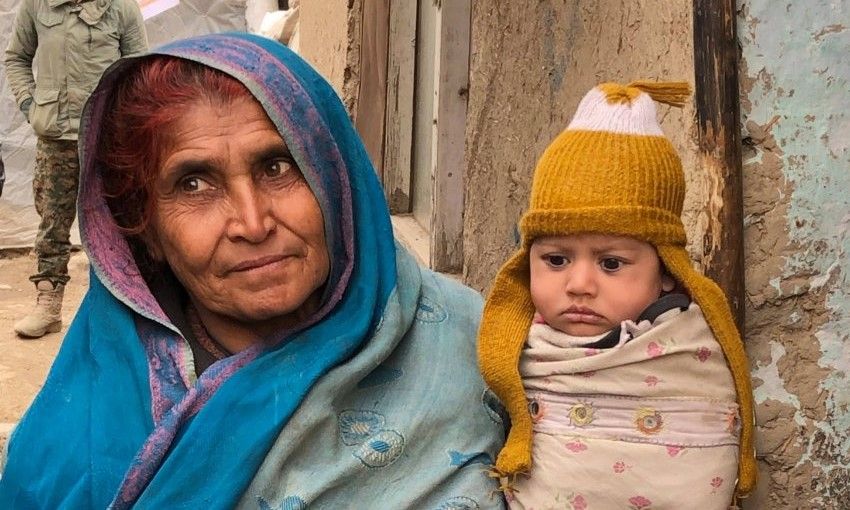
Prime Minister Scott Morrison probably never intended to rescue Afghans who had helped Australia’s occupation forces, but he is being forced to.
However, after having been part of the United States-NATO occupying army for 20 years, Australia has a moral obligation to do more for Afghans who need protection.
For months, as the Taliban took control of city after city, former Australian Defence Force (ADF) personnel have been demanding that Afghan interpreters, contractors and their families be rescued.
The calls increased after the United States troops pulled out of Afghanistan in early July. A number of angry veterans burnt their medals outside federal MPs offices on July 19.
Retired army officer Stuart McCarthy told the ABC on July 19 he was furious about the government’s “conscious decision” to leave hundreds of civilian interpreters and other “loyal allies” behind. He accused Australia of leaving them to be “slaughtered by the Taliban, the same terrorist organisation we were sent to fight for two decades.”
Not until the Taliban had taken Kabul did the government decide to send a plane, and the first on August 18 picked up just 26 people.
Reports indicate that all roads out of the country are blocked and the Taliban controls the road in and out of the Kabul airport.
The government’s calculated and ideologically-driven approach was summed up when Morrison said Australia needs to be “very clear who is getting on our planes”.
The Canadian government, by contrast, is expanding its resettlement program to include an extra 20,000 Afghans.
Immigration minister Alex Hawke has gone on record saying he will pause deporting any Afghans to Afghanistan – but only for now.
Morrison said Australia would provide around 3,000 visas for Afghan applicants. That’s its “humanitarian” response to the crisis unfolding in Afghanistan.
The 2020-21 budget cut the humanitarian refugee program by 5000 places from the 2018-19 level, to 13,750. Hawke said any extra Afghan refugees brought here will come from that pool and that there would be no change in the overall number.
Afghan refugees, particularly the Hazara ethnic minority, are feeling desperate.
Hazara Australian Sakhidad Faiaz told SBS on August 16 that the Taliban had killed 10 of his relatives this year. “They took them to a hall and beat them so much they broke their arms, legs and neck,” he said. “And even after they had died, they kept beating them.”
Hazara refugee Asad described his pain at a Refugee Action Collective zoom forum on August 15. While Asad is officially recognised as a refugee, he only has a Temporary Protection Visa (TPV), which means he cannot reunite with his family.
Now his TPV now expired and he had not been allowed to renew it. So, he lives in limbo, along with thousands of other Hazara and Afghan refugees in Australia.
Refugee rights organisations are pushing for more help for desperate Afghans in Afghanistan, those in exile in Pakistan, Malaysia and Indonesia, as well as those living in Australia.
They are campaigning for the government to:
- Commit to an additional humanitarian intake of at least 20,000, prioritising the most vulnerable persecuted Afghans. This is Canada’s approach and similar to when Australia accepted 12,000 Syrian refugees in its 2015 response to the conflict there.
- Lift the 2014 ban on resettlement of refugees here through the United Nations High Commissioner for Refugees in Indonesia. The ruling limits resettlement options for 10,000 Afghan refugees, awaiting safety and protection.
- Expedite the resettlement of: Afghan interpreters, guides and other personnel involved in helping the Australian Defence Forces; families of Afghan refugees already in Australia, as well as human rights advocates, journalists, female professionals and ethnic and religious groups facing discrimination and violence under the Taliban. (Hindus, Sikhs, and ethnic minority Hazaras experienced attacks, even before the withdrawal of US troops began.)
- Urge regional governments to keep their borders open to people fleeing persecution in Afghanistan, particularly Pakistan and Iran, and increase aid to assist people who have been displaced across borders. Support organisations still offering assistance within Afghanistan.
- Grant permanent protection to all Afghan refugees and asylum seekers who are on temporary protection and bridging visas.
- Grant an amnesty to all Afghan nationals currently in Australia who fear returning to Afghanistan.
- Release and grant visas to Afghan refugees and asylum seekers in detention and bring to Australia and grant visas to any Afghan refugees and asylum seekers on Nauru and in Papua New Guinea.
- Prioritise family reunification visas of Afghan-Australians, including those who are prevented from reuniting with their families due to a ministerial directive that requires the Department of Home Affairs deprioritises family reunion of hundreds of Afghans in Australia.